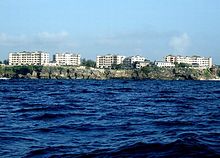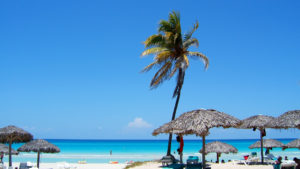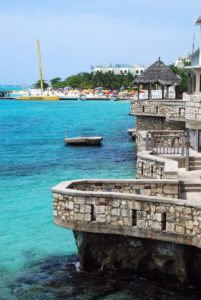Don’t fear Cuba! That’s the implication of new research released by the International Monetary Fund with Barbados Journalist Shawn Cumberbatch comments.
While noting that their analysis was “a static one that holds income constant and studies the possible changes in market shares due to normalisation of US-Cuba travel”, the three economists who did the study said any “anxiety” over increased travel by Americans to Cuba “may be misplaced”.
In their working paper, Revisiting The Potential Impact To The Rest Of The Caribbean From Opening US-Cuba Tourism, Dr Sebastian Acevedo, Dr Trevor Alleyne, and Dr Rafael Romeu estimated that “liberalising US-Cuba tourism could result in US arrivals to Cuba of between three [million] and 5.6 million, most of it coming from new tourists to the region”.
However, they added that some Caribbean destinations were more vulnerable to negative impact than others.
“Although it is not possible to pinpoint exactly which destinations will face more challenges from a US change in policy towards Cuba, the analysis . . . does suggest the most likely candidates [are] Anguilla, Belize, Saint Maarten, and the US Virgin Islands as the more vulnerable group,” they said.
“This does not mean that the other destinations are completely safe, or that this particular group will see declining US tourism flows, it only highlights the countries that would need to be more alert to changes in the US-Cuba relationship for possible spillovers.”
“As such, there is no reason to suggest that the sector will not continue to expand in the future. While tourism shares have shifted with Cancun, Cuba, and the Dominican Republic becoming larger players in the region, the rest of destinations have still managed to grow their sectors at respectable rates, even as their market shares have declined.
“Furthermore, Canadian tourists have been the fastest growing market in the region and in particular have become the most important market for Cuba. And still Canadian tourism has grown in all destinations at a very fast pace despite the fierce competition with Cuba. There is no reason to believe that free travel between the US and Cuba would be very different.”
The research also said “there will be a period of adjustment and more intense competition, which, as in the past, the Caribbean destinations must confront with sensible policies”.
Caribbean worries.
Caribbean tourism officials are pushing for a partnership with the U.S. government because of concerns that warming relations between the U.S. and Cuba will result in a significant loss of visitors to the rest of the region.
Cuba has seen such a surge in visitors that the fragile budgets of many tourism-dependent islands will be hit hard if they don’t take action, Frank Comito, CEO of the Caribbean Hotel & Tourism Association, said Wednesday.
“If we continue to operate business as usual, and we all draw from the same pie and Cuba is in the equation … there will be serious economic and employment consequences,” he said in a phone interview.
The association proposes the plan in a report that warns of Cuba’s impact on the Caribbean and that was sent to the U.S. International Trade Commission.
The report calls the opening of travel to Cuba for U.S. visitors “the biggest and most disruptive pebble to be dropped into the Caribbean pool in fifty years.”
“Those countries whose focus has been on the United States as their primary source market and who have not felt any competition from Cuba … will be surprised at how sophisticated and effective the Cuban marketing machine has become,” the report says.
The association said the islands where the tourism business could be most affected are those closest to Cuba — Jamaica, Cayman Islands and the Bahamas.
Visión optimista Caribeña contradicen consecuencias de la liberalización del Turismo a Cuba.
¡No temas a Cuba! Esa es la implicación de una nueva investigación del Fondo Monetario Internacional con los comentarios del periodista Shawn Cumberbatch de Barbados.
“Los tres economistas que hicieron el estudio señalaron que cualquier “ansiedad” por el aumento de los viajes de los estadounidenses a los Estados Unidos, al tiempo que señalaba que su análisis era “un estático que mantiene los ingresos constantes y estudia los posibles cambios en las cuotas de mercado debido a la normalización de los viajes entre EE.UU. Cuba “puede estar equivocada”.
El Dr. Sebastián Acevedo, el Dr. Trevor Alleyne y el Dr. Rafael Romeu estimaron que “la liberalización del turismo entre Estados Unidos y Cuba podría resultar en la llegada de Estados Unidos a Cuba de Entre tres [millones] y 5,6 millones, la mayor parte procedente de nuevos turistas a la región “.
Sin embargo, agregaron que algunos destinos del Caribe eran más vulnerables al impacto negativo que otros.
“A pesar de que no es posible determinar exactamente qué destinos enfrentarán más retos de un cambio de los EE.UU. en la política hacia Cuba, el análisis. . . Sugiere que los candidatos más probables son Anguila, Belice, San Martín y las Islas Vírgenes de Estados Unidos como el grupo más vulnerable “, dijeron.
“Esto no significa que los otros destinos sean completamente seguros, o que este grupo particular vea la disminución de los flujos de turismo en los Estados Unidos, solo destaca a los países que deberían estar más alertas a los cambios en la relación entre Estados Unidos y Cuba para posibles efectos indirectos”.
“Como tal, no hay razón para sugerir que el sector no continuará expandiéndose en el futuro. Mientras que las acciones de turismo han cambiado con Cancún, Cuba y la República Dominicana, convirtiéndose en actores más grandes en la región, el resto de destinos todavía han logrado hacer crecer sus sectores a tasas respetables, aun cuando sus cuotas de mercado han disminuido.
“Además, los turistas canadienses han sido el mercado de más rápido crecimiento en la región y en particular se han convertido en el mercado más importante para Cuba. Y aún el turismo canadiense ha crecido en todos los destinos a un ritmo muy rápido a pesar de la feroz competencia con Cuba. No hay razón para creer que el libre viaje entre Estados Unidos y Cuba sería muy diferente “.
La investigación también dijo que “habrá un período de ajuste y una competencia más intensa, que, como en el pasado, los destinos del Caribe deben enfrentar con políticas sensatas”.
Preocupaciones del Caribe.
Los funcionarios de turismo del Caribe están presionando por una asociación con el gobierno de Estados Unidos debido a las preocupaciones de que el calentamiento de las relaciones entre los Estados Unidos y Cuba resultará en una pérdida significativa de visitantes al resto de la región.
Cuba ha visto una oleada tan grande de visitantes que los frágiles presupuestos de muchas islas dependientes del turismo serán golpeados si no toman medidas, dijo el miércoles Frank Comito, director general de la Caribbean Hotel & Tourism Association.
“Si seguimos operando como siempre, y todos sacamos del mismo pastel y Cuba está en la ecuación … habrá graves consecuencias económicas y de empleo”, dijo en una entrevista telefónica.
La asociación propone el plan en un informe que advierte del impacto de Cuba en el Caribe y que fue enviado a la Comisión de Comercio Internacional de los Estados Unidos.
El reporte llama a la apertura de viajes a Cuba para los visitantes estadounidenses “el guijarro más grande y más perturbador que se caerá en la piscina del Caribe en cincuenta años”.
Agencies/BarbadosNationNews/Shawn Cumberbatch/ Toronto Sun/ D. Coto/ Internet Photos/ Arnoldo Varona/ TheCubanHistory.com
THE CUBAN HISTORY, HOLLYWOOD.



 > CARIBBEAN nations Optimistic vision contradict Liberalization of Cuba Tourism huge consequences. + VISIÓN Optimista de naciones Caribeñas contradicen las consecuencias de liberalización del Turismo a Cuba.
> CARIBBEAN nations Optimistic vision contradict Liberalization of Cuba Tourism huge consequences. + VISIÓN Optimista de naciones Caribeñas contradicen las consecuencias de liberalización del Turismo a Cuba.






